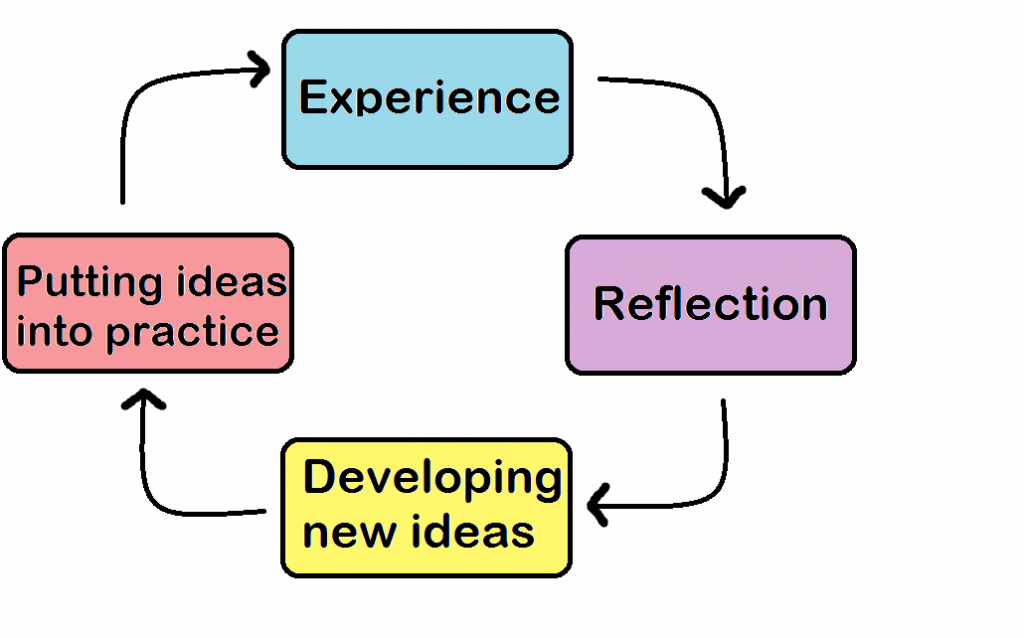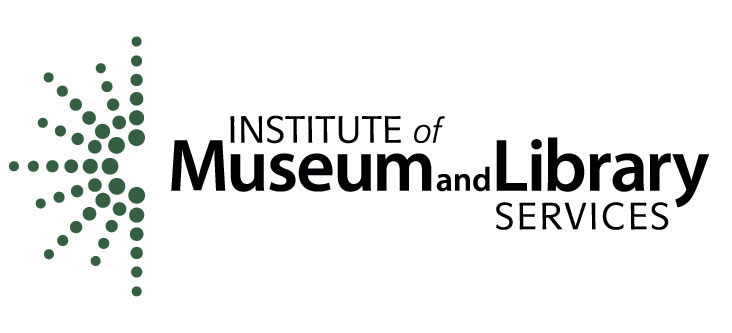Trauma-Informed Library Practices
The State Library is continuing ongoing efforts to support public libraries with serving patrons who have social service-related needs. This initiative originally began in 2022 with a statewide needs assessment conducted by Dr. Beth Wahler, and continues today with new educational and training opportunities for Iowa public library administrators and staff as well as new reflective practice-focused support groups conducted by Alyssa Caldbeck, MSW, LISW.
Reflective Practice Groups
Beginning in Fall 2024, Alyssa Caldbeck, MSW, LISW will facilitate six different online support groups using a technique called reflective practice. These groups will meet via Zoom on a monthly basis, with two groups geared towards library administrators (one for urban/suburban and one for rural administrators) and four groups for non-administrative staff (two for urban/suburban and two for rural library staff). The groups will be offered through the length of the grant until summer 2026. Continuing education credit will not be awarded for participating in the groups.
Participation is confidential and only the group facilitator and other members of the same group will know the names of participants. Groups will focus on creating a safe space to share and reflect on personal experiences at work, gain social support from others in similar roles, and continuously learn new perspectives and skills as needed. Reflective practice techniques have been found to be helpful with preventing and reducing burnout, compassion fatigue, and vicarious trauma.
Librarians attending the groups should:
- Discuss with their supervisor the group’s meeting schedule to ensure necessary coverage for their regular duties.
- Have a private, confidential space to participate in the group via Zoom, including a computer with microphone, audio and video capabilities.
By participating in reflective practice groups, library staff can enhance their professional practice, support each other in maintaining well-being, and build a more resilient and inclusive work environment.
Group Types, Days, and Meeting Times:
| Urban/Suburban Libraries | Rural Libraries |
|---|---|
|
Admins: 4th Tuesdays |
Admins: 4th Thursdays |
|
Staff Option 1: 2nd Thursdays |
Staff Option 1: 1st Thursdays |
|
Staff Option 2: 3rd Tuesdays |
Staff Option 2: 2nd Tuesdays |
Sign up to attend a reflective practice group at the link below:
What is Reflective Practice?

Reflective practice is a deliberate process of critically analyzing one's experiences, actions, and emotions to gain deeper insights and enhance professional practice. In the context of a library setting, reflective practice helps individuals examine their work and well-being to:
- Assess Personal Well-being and Navigate Emotional Labor: Reflective practice encourages professionals, particularly in library work, to regularly check in with themselves to recognize signs of stress, burnout, or dissatisfaction. It helps them identify how the emotional labor of managing their emotions to maintain a welcoming and supportive environment for patrons impacts their physical, emotional, and mental health. Through reflection, librarians can address these emotional demands and develop strategies to better care for their wellbeing.
- Understand Work-Life Balance: By reflecting on their daily routines and responsibilities, individuals can evaluate how they are balancing their work and personal lives. This practice helps to identify areas where they might need to set boundaries or make changes to maintain a healthier balance.
- Enhance Emotional Intelligence: Reflection helps to develop self-awareness and emotional intelligence by examining how one’s emotions affect their interactions with colleagues and clients and how those emotions are managed in different situations.
- Promote Personal Growth: Reflective practice promotes continuous personal and professional development by encouraging individuals to explore their values, motivations, and goals and consider how these align with their work.
- Develop Resilience: Through reflection, individuals can better understand how they respond to challenges or setbacks and develop strategies to build resilience and cope more effectively with stress.
- Adaptation to Change: The rapidly changing landscape of information technology, digital resources, and library services means librarians must continuously adapt to new tools and practices. Reflective practice helps librarians identify skills they need to develop and how to best adapt to change while minimizing stress.
- Navigating Multiple Roles & Expectations: Librarians may take on various roles, from information specialists to educators and community outreach coordinators. Reflecting on their experiences can help them prioritize tasks, set realistic expectations, and manage their workload more effectively.
- Creating Inclusive Spaces: Librarians are often at the forefront of efforts to create inclusive, accessible, and welcoming environments for all patrons. Reflective practice can support these efforts by encouraging staff to consider their own biases, assumptions, and practices and how they might affect different groups.
- Support Patron Needs: Librarians often encounter diverse patron needs and expectations, including challenging interactions that require patience, empathy, and effective communication skills. Reflective practice allows them to evaluate these interactions and consider how to improve their responses while maintaining their own well-being and increasing their overall capacity to meet these needs.
- Embodying Trauma-Informed Practices & Librarianship: Reflective practice is crucial in integrating a trauma-informed approach into all library services, policies, and interactions. By fostering continuous self-awareness and critical thinking, reflective practice helps library staff recognize and address the impact of trauma, ensuring that the environment remains safe, supportive, and inclusive for both patrons and staff.
Watch the video below from Alyssa Caldwell for more on the reflective practice groups:
What to Expect in the Groups
Reflective practice groups provide a structured, supportive environment for library staff to reflect on their work experiences and wellbeing together. These groups are often facilitated and follow a set format. Here’s what they typically involve:
- Regular Meetings: Reflective practice groups meet regularly (e.g., weekly or monthly) to ensure continuity and provide ongoing support. Meetings might be held in person or virtually, depending on the group's needs.
- Structured Format: Sessions usually follow a structured format, such as:
- Check-in: A brief personal check-in where participants share their current state of wellbeing or any immediate concerns.
- Reflection Exercise: A guided reflection exercise or prompt. For example, participants might be asked to reflect on a recent challenging interaction with a patron or a situation that affected their stress levels.
- Group Discussion: Open discussion where participants share their reflections, listen to others, and provide support or feedback.
- Facilitated by a Leader: A facilitator, often a trained professional or an experienced staff member, guides the sessions (in this case a Licensed Independent Social Work). The facilitator ensures the discussion remains constructive, inclusive, and focused on reflection and growth.
- Peer Support and Empathy: Participants provide mutual support, sharing their experiences and insights. This process fosters empathy, understanding, and community among the group members.
- Feedback and Learning: Members are encouraged to offer constructive feedback and share different perspectives, which can help others see situations from new angles and apply learnings to their practice.
- Action Planning: Groups may conclude with an action-planning segment or skill capacity building, where participants identify concrete steps to apply what they have learned to their work and well-being. This might include setting goals, trying new approaches, or committing to self-care practices.By participating in reflective practice groups, library staff can enhance their professional practice, support each other in maintaining wellbeing, and build a more resilient and inclusive work environment.
By participating in reflective practice groups, library staff can enhance their professional practice, support each other in maintaining well-being, and build a more resilient and inclusive work environment.
Educational and Training Opportunities
New Endorsement Modules
The State Library has added an online video-based endorsement track available through Workday Learning (set to launch October 2024) to help support library workers to address the needs of high-needs patrons as well as create healthy, supportive work environments. This free, self-directed learning opportunity can be completed at the convenience of staff and includes two separate sets of modules, one for staff in administrative or supervisory roles and one for non-administrative staff.
About the Modules
Both sets of modules include information about the changing needs of patrons, how these needs impact staff, and trauma-informed strategies that can help with patrons who have social service-related needs. They include information about:
- Trauma-informed care in a library context
- Setting and enforcing boundaries
- Organizational practices for supporting wellness of staff
- Strategies for responding to and reducing behavioral problems that occur with patrons
The administrative/supervisory modules also include additional content on:
- Leadership strategies for supporting staff
- Building community collaborations that can help libraries with these needs
- Strategies for increasing buy-in and support from local administrators, funders, or boards
Modules also include additional resources to help staff apply their learning in their own library contexts, including handouts and reflection questions to consider individually or with their colleagues.
Apply to begin a Trauma-Informed Library Practices Endorsement
Mental Health First Aid Training
Mental Health First Aid is an evidence-based course designed to help participants identify and intervene with someone experiencing a mental health or substance-use related crisis. These courses are designed specifically for people working in all types of public-serving environments and have been very helpful in many library environments to increase staff skills and improve confidence handling difficult situations.
Alyssa Caldbeck, MSW, LISW will facilitate Mental Health First Aid training for in-person sessions in each district across the state as well as a virtual option. These courses will be scheduled beginning early 2025 through summer of 2026.
More information and registration to come!
2022 Statewide Needs Assessment Project
In and after 2020, the pandemic further highlighted the growing social service-related needs of the public in Iowa and the important role libraries and librarians play in their communities. Thanks to funding from the Institute of Museum and Library Services and the American Rescue Plan Act, the State Library partnered with Dr. Wahler to conduct a statewide needs assessment in 2022.
This needs assessment focused on staff perceptions of patrons’ psychosocial needs and assessed gaps in the ability to meet those needs. It also focused on an assessment of staff and library readiness for adding a social service component (referral and information regarding social service-related needs, not clinical services) to library services. At the beginning of the needs assessment process, Dr. Wahler delivered a training on library/social work collaborations to help Iowa libraries understand potential options for adding a social worker in their library.
The needs assessment took into consideration the rural context of many of the state’s public libraries and distinguished between urban and rural libraries in the report and recommendations. The needs assessment methods included:
- Surveys
- Focus groups
- In-depth qualitative interviews
Dr. Wahler presented the results from the needs assessment and her recommendations in a webinar on February 9, 2023. Recommendations included adding both educational opportunities for library staff and adding a support group component for improving staff’s resilience to work-related stress.
Watch the Needs Assessment Recommendations Webinar
These recommendations were incorporated into a successful grant proposal to the Institute of Museum and Library Services Laura Bush 21st Century Librarian Program, which funds the current strategies piloted in 2024 and continuing over the next two years.
 This project was made possible in part by the Institute of Museum and Library Services Grant #RE-254904-OLS-23.
This project was made possible in part by the Institute of Museum and Library Services Grant #RE-254904-OLS-23.
 Beth Wahler, PhD, MSW is founder and principal consultant at
Beth Wahler, PhD, MSW is founder and principal consultant at  Alyssa Caldbeck, MSW, LISW is a Licensed Independent Social Worker with a wide range of social work practice, educational, and training experiences including prior experience with both Mental Health First Aid and facilitating reflective practice groups with non-social work professionals. She is a long-time supporter of libraries and is acutely aware of the challenges faced by library staff due to patrons’ social service-related needs, having previously supervised library-based social work practicum students. Alyssa lives and works in Iowa, has worked with both urban and rural communities and individuals, and focuses primarily on issues related to burnout, vicarious trauma, and compassion fatigue. She strives to create safe, supportive environments for professionals from diverse backgrounds to explore their work-related experiences and challenges while simultaneously continuing their personal and professional growth.
Alyssa Caldbeck, MSW, LISW is a Licensed Independent Social Worker with a wide range of social work practice, educational, and training experiences including prior experience with both Mental Health First Aid and facilitating reflective practice groups with non-social work professionals. She is a long-time supporter of libraries and is acutely aware of the challenges faced by library staff due to patrons’ social service-related needs, having previously supervised library-based social work practicum students. Alyssa lives and works in Iowa, has worked with both urban and rural communities and individuals, and focuses primarily on issues related to burnout, vicarious trauma, and compassion fatigue. She strives to create safe, supportive environments for professionals from diverse backgrounds to explore their work-related experiences and challenges while simultaneously continuing their personal and professional growth.